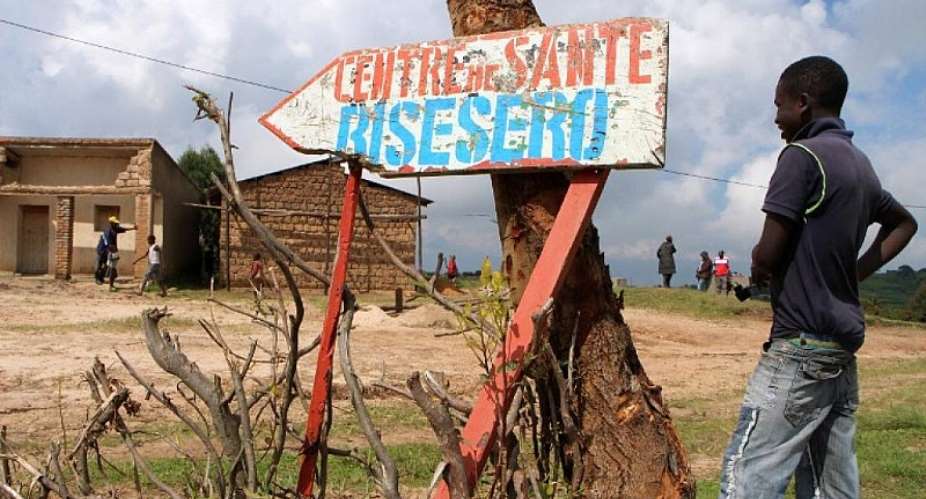Human rights groups in France have called for the extension of a government inquiry into the French military's response to a massacre in Rwanda during the 1994 genocide. This after the investigative website Médiapart published a video on Thursday showing a French colonel being briefed on the killings days before the military intervened.
Three French human rights groups – the Worldwide Movement for Human Rights (FIDH), the Human Rights League (FDH) and Survie (Survival) – held a press conference in Paris on Friday, urging authorities to relaunch its probe into allegations the French military failed to prevent the Bisesero massacre, in western Rwanda, in June 1994.
The government's decision in July to officially close the years-long investigation with no prosecutions recommended , over a supposed lack of evidence, had already been criticised by human rights groups.
But the video published by Médiapart on Thursday has sparked new calls for the probe to be reopened. [Médiapart has a paywall, but excerpts of the video can be seen here on France 24, RFI's sister site.]
“This video shows that the French military was aware of the fact that Tutsis were being killed and trying to escape. Despite this, it waited three days before giving the order to intervene,” Olivier Foks, a lawyer for Survie, said at Friday's press conference.
“We want the government to extend its inquiry because we want to determine who should be held responsible,” he said. “Was the decision against intervention made by soldiers on the ground, by high-ranking officers or by politicians?
“We want to know who is responsible,” he added. “This is a question of genocide.”
Failure to react
Reportedly filmed on 28 June 1994, the video shows a French staff sergeant speaking with Colonel Jacques Rosier. The colonel oversaw Operation Turquoise, the French-led military operation that year in Rwanda under the mandate of the UN.
Staff Sergeant M, as he's named in the Médiapart article, tells Rosier what he witnessed in Bisesero the previous day, on 27 September.
“People were being beaten all day long,” the staff sergeant says, describing the violence inflicted by Hutu militiamen on Tutsis. “Houses were on fire all throughout the hills, people were stumbling around with flesh hanging off their bodies.”
Graphic accounts that elicit a minimalist reaction from Rosier. “Oh yeah?” is the colonel's reply.
The staff sergeant continues. “The problem is that I don't know if the victims have access to care. They're walking around covered in infected wounds,” he says.
“Yeah, yeah,” Rosier replies, again.
As the staff sergeant presses on, Rosier repeats “yeah” a couple more times while looking down at the ground. And then the video ends.
The video shows that French officers were aware of the Bisesero killings as early as 27 June. But they didn't intervene until 30 June. During those three days, more than 1,000 Tutsis were killed. The victims were among the estimated 800,000 Tutsis killed during the genocide, which only spanned a period of some 100 days between April and July 2014.
Indifferent justice
Médiapart's article has made the video known to the wider public in recent days. But the site reports that the Justice Ministry has known of the recording since 2013, when a former soldier of Operation Turquoise provided it to justice officials, and that the video is part of the French Defence Ministry's audiovisual archives.
Médiapart reports that Rosier was even asked about the video by a judge in 2015, when the government probe was still ongoing. “I have no memory whatsoever of this event,” he told the judge upon viewing the video, according to Mediapart. “I can see that I wasn't fully grasping what I was being told. My mind was elsewhere. I was preparing for a press conference, so much had happened since the day before. I was under a lot of pressure. Seeing this now, it seems incredible to me that I didn't react to this information.”
Rosier was interviewed as a witness but was never charged, according to Médiapart. His lawyer, Emmanuel Bidanda, told the publication he didn't wish to comment.





 There’s nothing you can do for us; just give us electricity to save our collapsi...
There’s nothing you can do for us; just give us electricity to save our collapsi...
 Ghanaian media failing in watchdog duties — Sulemana Braimah
Ghanaian media failing in watchdog duties — Sulemana Braimah
 On any scale, Mahama can't match Bawumia — NPP Youth Organiser
On any scale, Mahama can't match Bawumia — NPP Youth Organiser
 Never tag me as an NPP pastor; I'm 'pained' the 'Akyem Mafia' are still in charg...
Never tag me as an NPP pastor; I'm 'pained' the 'Akyem Mafia' are still in charg...
 Your refusal to dedicate a project to Atta Mills means you never loved him — Kok...
Your refusal to dedicate a project to Atta Mills means you never loved him — Kok...
 2024 elections: I'm competent, not just a dreamer; vote for me — Alan
2024 elections: I'm competent, not just a dreamer; vote for me — Alan
 2024 elections: Forget NPP, NDC; I've the Holy Spirit backing me and nothing wil...
2024 elections: Forget NPP, NDC; I've the Holy Spirit backing me and nothing wil...
 2024 elections: We've no trust in judiciary; we'll ensure ballots are well secur...
2024 elections: We've no trust in judiciary; we'll ensure ballots are well secur...
 Performance tracker: Fire MCEs, DCEs who document Mahama's projects; they're not...
Performance tracker: Fire MCEs, DCEs who document Mahama's projects; they're not...
 Train crash: Railway ministry shares footage of incident
Train crash: Railway ministry shares footage of incident
